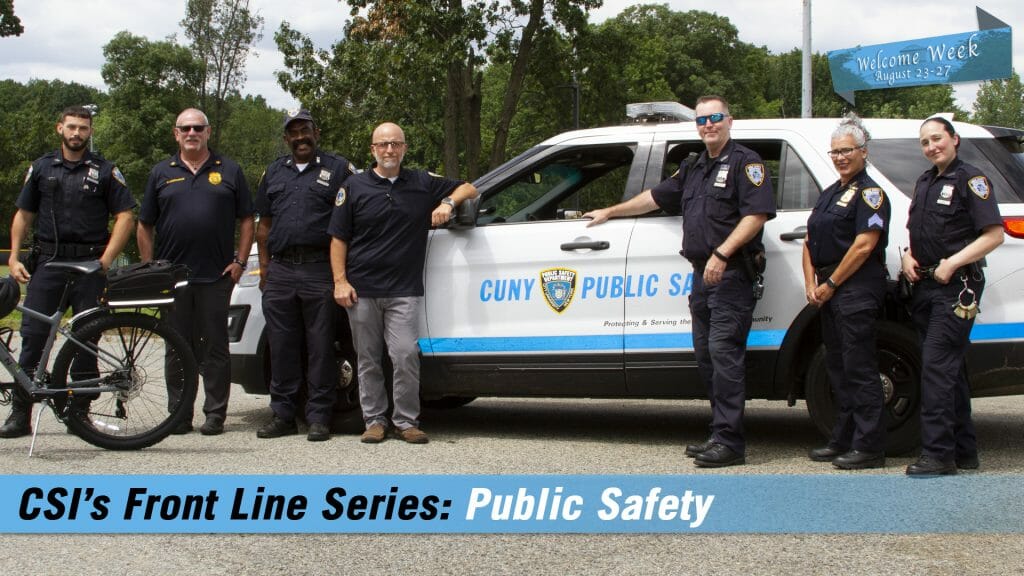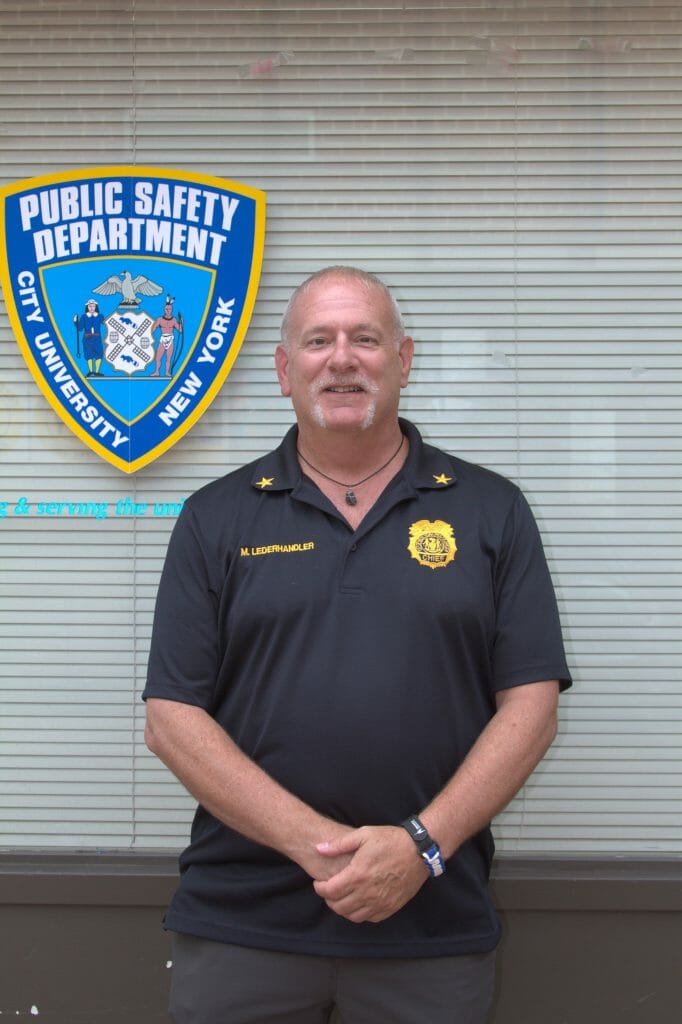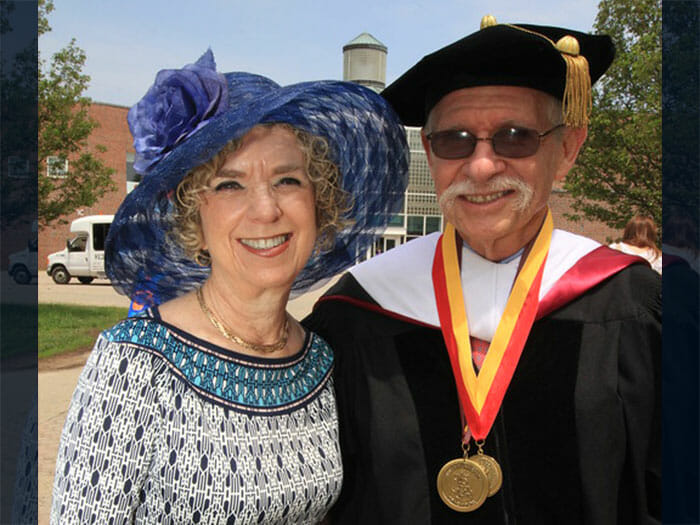
This is the first in a series of articles in CSI Today that will examine the professional effects of the COVID-19 pandemic on the College’s Front Line Workers, and their determined efforts to ensure the safety of our campus. The CSI Office of Public Safety is under the supervision of Hope Berte, Vice President for Campus Planning, Facilities, and Operations. VP Berte commented that “There are many staff in the division who should be recognized for their outstanding commitment and dedication during these unprecedented circumstances. All have worked under the direct guidance of each of the managers who are spotlighted in this series.”
The CSI Office of Public Safety has been on duty prior to and during the pandemic, ensuring an environment on campus that is safe and conducive to learning, teaching, and working. Once COVID-19 necessitated limited access to the Willowbrook campus, things changed drastically and evolved constantly, according to Public Safety Director Michael Lederhandler. “When the College shut down, our role became one of access control. For a period of time at the beginning, no one was allowed on campus except Public Safety and the building engineers who needed to keep the power plant running…Then over time, more and more people started to return. First, custodians and laborers. Then researchers, professors, and students. But still we had not gone back to being the open campus that we were. We were under constraints as to how many people could enter campus each day.”

Public Safety eventually teamed up with the Office of Information and Technology to devise an access system that provided officers at the Front Gate with the names of people who were approved to be on campus. They also maintained a health-screening station in Building 1R for people who didn’t have access to Everbridge, the approved phone app for that purpose.
Computers also came to play a role in the duties of Public Safety, as officers distributed devices to students so that they could participate in remote learning, and as Lederhandler explains, “one of our main duties became turning on and re-booting people’s computers so that they could continue to work remotely. This became a task that we continue to do multiple times per day.”
Another part of the evolving role for Public Safety is the impending re-opening of the campus. Lederhandler notes that “Working with other offices on campus (Buildings and Grounds, Environmental Health and Safety, etc.) we are surveying the campus in terms of lighting and other things such as structural and environmental conditions that may need to be rectified prior to fully re-populating the campus. Additionally, we are actively in the process of upgrading our CCTV systems and emergency call boxes around the campus.” Officers are also taking a five-day Police Mountain Biking Course to add a more personal dimension to patrolling campus than riding in vehicles, as well as a course from the NYS Department of Criminal Justice Services on de-escalation of incidents.
CSI Today asked Lederhandler if there were any bright spots that emerged during the pandemic. “It was important to me that we did not use the pandemic as an excuse to get lazy,” Lederhandler replied. “Many of the skills that we use in our job are diminishable skills that if not used tend to wane. So, we used a lot of this time to train on things that we may not always have the time to when we are busy and at full population.”
Summing up how it felt to be on the front lines during the pandemic, Lederhandler said, ”This is what we do. On the day after 9/11 and for the next few weeks, I went with a cadre of CUNY Officers to help in the rescue and recovery efforts. During Superstorm Sandy, I was all over the City setting up shelters at a number of our colleges in the University. These are things that people in our field do without thinking about it. During this pandemic, I was actually grateful that I had a place that I needed to be every day rather than sitting and working from home.”
By Terry Mares














